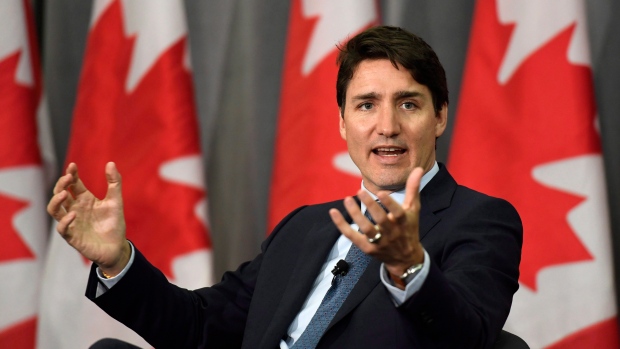Immigrants can be an unpredictable bunch. Perhaps that’s to be expected from anyone willing to pack their lives into a suitcase and start anew halfway around the world. It’s an important attribute to survive and thrive, as most are fortunate to do in Canada. But it also leads to some unpleasant surprises for politicians, who, having welcomed them in, naively expect their undying electoral loyalty. Judging by his recent actions, Prime Minister Justin Trudeau is set to learn this the hard way.
The late Gérald Godin, first Immigration minister for the Parti Québécois in the 1980s, gladly welcomed francophone immigrants by the hundreds of thousands, envisioning a legion of new French Canadians that would gratefully and obediently vote for an independent Quebec. Instead, this “ethnic vote” dashed his dreams and voted en masse for a unified Canada in 1995.
Mr. Trudeau is about to walk into a similar pitfall. Despite his glaring inability to come up with a credible plan to address what’s being called a border-crossing crisis, the Prime Minister appears set to make the issue a key plank of his 2019 re-election campaign. In recent weeks, his team has picked fights with Ontario Premier Doug Ford’s newly elected PC government on the matter.
Federal Immigration Minister Ahmed Hussen called Ontario Minister Lisa MacLeod “un-Canadian” for her audacity to question the federal government’s fiscal responsibilities toward provinces caring for asylum seekers. Mr. Trudeau’s principal secretary, Gerald Butts, went one step further by declaring any criticism of his government’s handling of the file as “alt-right.” Positioning Mr. Trudeau as a saviour of the stateless and oppressed is a campaign strategy, and with many urbanite, centre-left voters, it could work. But where he’ll likely suffer for it most is in the suburban, immigrant-rich, swing ridings the Liberals desperately need to retain to keep their majority.
While earning him points with the Davos circuit, Mr. Trudeau’s attitude toward the concept of citizenship may prove a great political liability with established immigrants. Having shed years of blood, sweat and tears to earn their Canadian passports, many immigrant voters likely didn’t take kindly to their Prime Minister issuing, via Twitter, an open invitation to the rest of the world to collect theirs at the door.
We could, and should, have an honest debate about the consequences of the PM’s grandstanding in encouraging migrants to cross over in the first place, and his seeming reluctance to defend the integrity of Canada’s borders publicly. What is irrefutable is that his words betrayed a lack of seriousness about the value of Canadian citizenship.
Despite the Prime Minister’s claim to understand the immigrant experience (his grandfather immigrated to Canada from Scotland in 1911), Mr. Trudeau likely has a lot to learn about new Canadians' mindsets. Many of us come from developing countries where mass migration didn’t result in bureaucratic overflow, but in chaos, violence and political instability. Those factors are part of the reason my family found ourselves detained overnight at Pearson Airport in 2001, having arrived as “irregular” migrants. They are also why I and others want Canada to prioritize and welcome the most vulnerable refugees in greatest need of our sanctuary – not just the relatively resourced asylum seekers who can reach our physical borders.
Many established immigrants proudly spent their first years in dusk-to-dawn jobs, scraping together barely enough to provide for their families. Some are understandably annoyed by anecdotes of new asylum seekers being arrested for illegally crossing the border, only to receive tens of thousands in benefits and be housed in four-star hotels. Isolated complaints from new arrivals about minor inconveniences are unrepresentative, but will nevertheless further fan these flames.
Instead of fighting against Ontario’s new premier, Mr. Trudeau should use this opportunity to learn a lesson from Mr. Ford, who handily swept the immigrant-rich ridings of the 905 and outer Toronto and is celebrated as a champion by new Canadians. Despite slandering of Mr. Ford as racist and Trump-lite, the new Premier didn’t waste a moment virtue-signalling about diversity and acceptance. Instead, he successfully appealed to new Canadians with his focus on safe streets, family values and fiscal prudence.
Mr. Ford’s campaign brought back memories of Stephen Harper of 2011, who won his majority in great part because he treated immigrants as multidimensional citizens, concerned most of all with the issues of home ownership, access to quality jobs and greater individual prosperity through lower taxes. Mr. Trudeau, on the other hand, is increasingly likely to lose their support in 2019 by willfully diminishing the values of new Canadians and replacing them with his own. Then he expects them to be grateful for it.
























